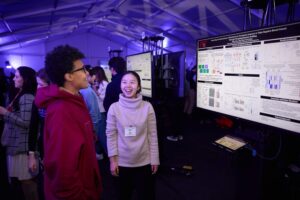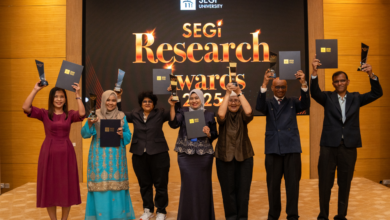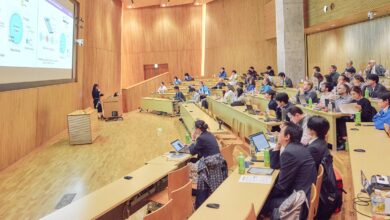MIT Students Innovate Real-World Solutions for Life Science Challenges

The MIT Life Sciences and Health Collaborative (MIT HEALS), launched on December 4, aims to address significant global health challenges by integrating expertise from multiple disciplines, including engineering, biology, neuroscience, artificial intelligence, and public health.
Interdisciplinary Collaboration
Katharina Ribbeck, a professor in the Department of Biological Engineering, highlighted the intricate nature of contemporary life science challenges, indicating that effective solutions often necessitate interdisciplinary collaboration. She advocated for the involvement of sociologists, public health experts, and economists, alongside engineers and biologists, to develop scalable, equitable, and accessible engineering solutions.
Launch Event Highlights
The launch event included a welcome address from MIT President Sally Kornbluth, followed by faculty presentations that showcased transformative research, panel discussions, and a poster session that featured research from the MIT community with a focus on life sciences.
Poster Session Overview
The poster session, titled “Revolutions in Life Sciences & Engineering,” occurred in the Kresge Lobby and Tent, showcasing over 100 research projects across various fields, including diagnostics, women’s health, neuroscience, and mental health. Ribbeck articulated that the session aimed to acknowledge the contributions of MIT students in advancing the vision of MIT HEALS and to foster new collaborative initiatives among peers.
Environment for Collaboration
Co-chair Iain Cheeseman, a professor and associate department head in the Department of Biology, noted MIT’s conducive environment for interdisciplinary collaboration, pointing out the diverse range of disciplines represented at the poster session, such as architecture, climate science, and public health policy.
Student Insights
Attendees participated in discussions regarding potential intersections with their own research. Graduate student Sydney Bailes observed machine learning and data science applications presented during the session and recognized their potential to enhance her studies on sleep and cognitive health.
Another graduate student, Benjamin Lahner from the Department of Electrical Engineering and Computer Science, expressed interest in the various medical device design projects showcased, which pertain to his research on the human brain.
Notable Research Projects
Several notable research projects highlighted during the session included:
- Powered Prostheses for Amputees: Researchers from The K. Lisa Yang Center for Bionics are developing powered knee-ankle prostheses designed to enhance mobility for individuals with above-knee amputations.
- Investigating Sleep and Cognitive Health: Research teams are exploring the connection between sleep and neurodegenerative diseases with the intent of identifying biomarkers for impaired sleep and possible interventions.
- Personalizing Chemotherapy Dosage: The CLAUDIA device is being created to customize chemotherapy dosing by optimizing infusion rates based on real-time measurements of drug concentration.
- Leveraging Mucus in Therapies: Investigations into mucins have led to the development of scalable therapies that utilize the body’s natural mechanisms to combat pathogens.
- Customized Medical Devices for Stroke Prevention: A research team is working on creating personalized medical devices that can be generated within patients’ bodies, utilizing advancements in minimally invasive techniques.
- Brain-to-Video Generative Machine Learning Model: A research team has developed a model capable of reconstructing video clips from brain signals, aiming to understand how information is encoded in the human brain.
Recognition of Research Contributions
The poster session also recognized outstanding research contributions across various categories, emphasizing achievements in fundamental discovery and impactful health research.
Commitment to Innovation
The event reaffirmed MIT’s commitment to fostering interdisciplinary collaboration that addresses complex health challenges through innovative research and technology.
Source: MIT News




